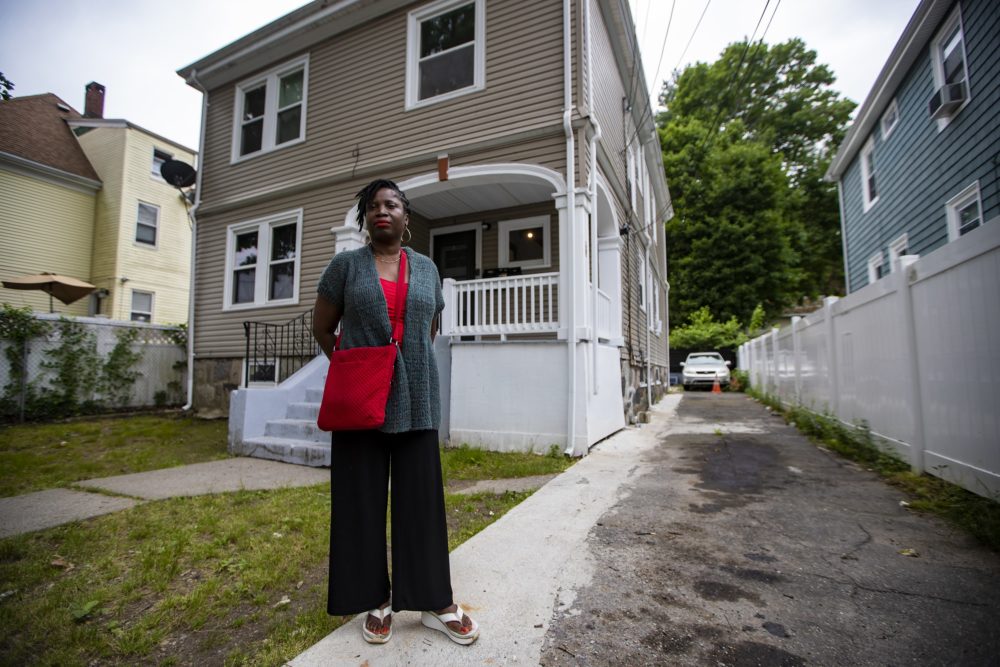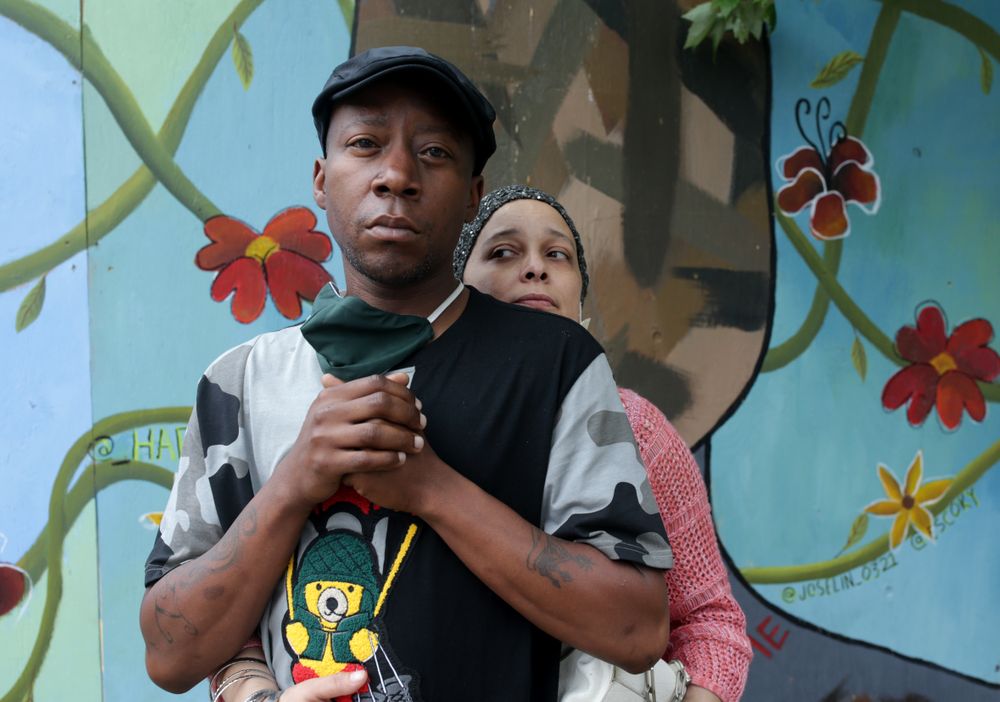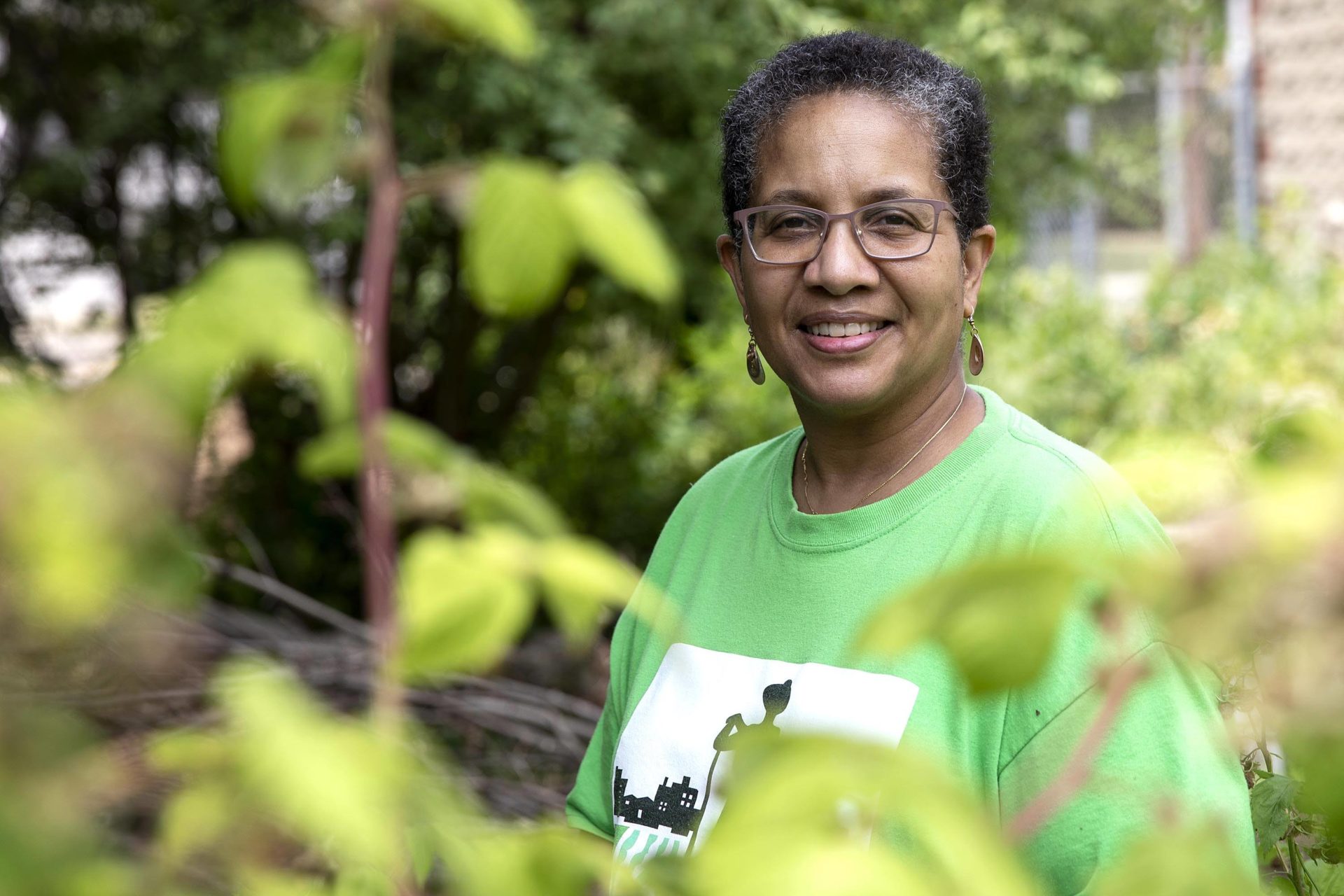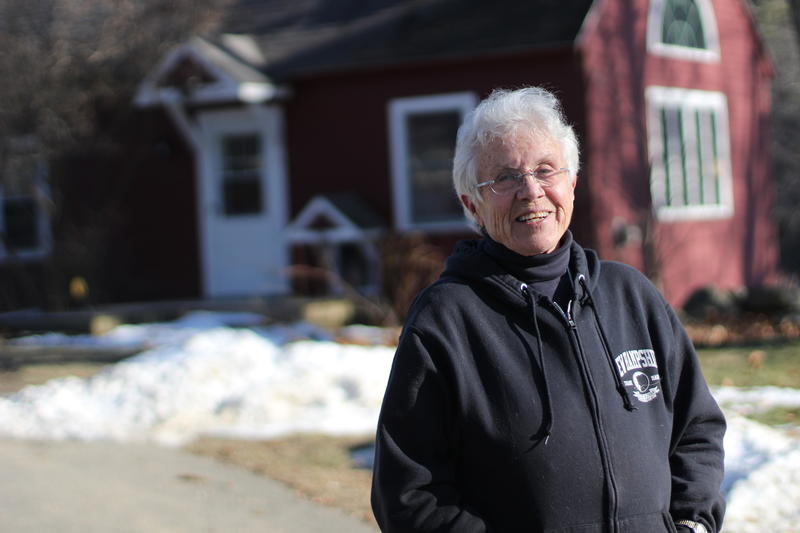Episode 206: Tackling The Anticipated Rise In Evictions; Investing In ‘Green’ Pandemic Recovery
Eviction cases are expected to soar this summer. This week on NEXT, the debate over extending an eviction moratorium. Plus, a recent night of vandalism in Providence, Rhode Island, was blamed on “outside agitators” — the story is much more complicated. And 16 ideas for investing in a green pandemic recovery.
Landlords And Tenants Are At Odds — But Agree On Need For Massive Cash Infusion For Rent

Carline Chery standing outside of her rental property in the neighborhood of Dorchester in Boston. (Jesse Costa/WBUR)
When the pandemic hit, New England states put moratoriums on evictions. That helped tenants who couldn’t pay rent, but left some landlords in a tough spot. Now, as housing relief measures and pandemic unemployment benefits are expiring, eviction cases are expected to soar. Rhode Island and New Hampshire have already lifted eviction moratoriums. A few other New England states — like Massachusetts — are set to do so in August. Some state lawmakers are pushing for a bill that would extend the eviction moratorium, but critics say that would hurt small landlords.
“It’s like everything I’m trying to do, it’s working against me,” said Carline Chery, who owns a rental property in Boston. “Because they know the law. I can’t evict them. I’m forced to sell.”
As part of a bilingual collaboration between WBUR and the newspaper El Planeta, Simón Ríos explores some of the solutions being considered in Massachusetts to prevent an eviction crisis. [En español.]
The Complicated Story Behind A Fiery June Night In Providence

Darryl K. Jordan Jr., front, with his girlfriend, Shevon L. Young, in front of a mural painted on a boarded-up storefront window in Providence, Rhode Island. (Jonathan Wiggs/The Boston Globe)
The vast majority of protests against police violence and racism have been peaceful. But on the first night in June, as hundreds of people descended on downtown Providence, Rhode Island, storefronts were smashed and a police car was set ablaze. The damage was initially blamed on “outside agitators” and anti-government types using the Black Lives Matter slogan as cover for vandalism and burglary. But The Public’s Radio and The Boston Globe found that what happened that night was much more complicated.
“I’ve dealt with a lot of racism in my life, and I’ve had friends that have passed away due to brutality,” said Darryl K. Jordan, 43, one of the oldest people arrested that night. “I didn’t go down there to burn cars or tear buildings down. I just felt like I needed to be present.”
This story was co-reported by The Public’s Radio’s Lynn Arditi and Antonia Ayres-Brown and The Boston Globe’s Amanda Milkovits.
16 Ways The Pandemic Recovery Could Be Green

Patricia Spence, president of the Urban Farming Institute in the Mattapan neighborhood of Boston. (Robin Lubbock/WBUR)
The pandemic has forced many people in New England into a dire economic situation. But there is at least one potential silver lining: the opportunity for climate action. It’s likely the federal government will approve stimulus money again to try to boost the economy, and many environmentalists propose we intentionally direct some of those funds toward “green” recovery. WBUR‘s Bruce Gellerman asked 16 environmental thinkers in Massachusetts how they would invest those funds, and the ideas ranged from increasing composting to nuclear energy.
Patricia Spence, president of the Urban Farming Institute in Boston, proposed investing in land for local farming.
“Since the pandemic hit, we’ve been growing more food and seedlings for our folks experiencing higher rates of food insecurity. The pandemic has exposed how badly our food chain needs repairing. The solutions we’re coming up with in this crisis should be continued. With increased recovery funding, we can acquire more land and train more urban farmers so we can do our part to meet the other rapidly approaching crisis: climate change. More farms, more food in the city means lower global warming emissions and a decrease in rising temperatures.”
Read about all 16 green recovery proposals here.
Author Elizabeth Marshall Thomas On Pleasures And Prejudices Of Aging

Elizabeth Marshall Thomas in Peterborough, N.H. in 2016. (Peter Biello/NHPR)
Elizabeth Marshall Thomas has spent most of her life observing the natural world and writing about it. She’s written 14 books over her half-century career, including the New York Times-bestselling book “The Hidden Life of Dogs.” Her new book, “Growing Old: Notes On Aging With Something Like Grace,” came out this year. Thomas, 88, joined NEXT and talked about enjoying the slower pace of aging.
“Writing is pleasurable. It’s my favorite thing,” Thomas said. “I enjoy looking at animals. We have deer come in the field, and there was a bear the other day.”
NEXT Wants to Hear From You:
Last week, we asked you how the pandemic has impacted your personal relationships. We heard from listener Kelly Scheck in Norwich, Connecticut.
“Both my husband and I are fairly newly married, and we were both worried that we might not get along during this process, but we found ourselves growing much, much closer.”
Another listener, Kelly Doyle from Piscataquis County, Maine, has had a different experience, telling NEXT, “My relationships have gotten even more strained.”
Doyle described an instance when her friend was visiting and wore a mask in Doyle’s house, and Doyle did not. She said it made their interaction feel awkward; she felt guilty and sad that her friend seemed uncomfortable without a mask. Doyle said she chooses not to wear a mask in most circumstances, although she’ll wear one at the grocery store. (Here’s an NPR primer on wearing masks to slow the spread of COVID-19.)
So we ask this week: How do you feel about wearing a mask these days? Are there times, as Doyle shared, where you think people are going overboard? Or do you notice fewer people wearing masks as infection rates decline in New England, and what do you think about that? Leave a voicemail on our comment line: 860-275-7595. Or send us an email at next@ctpublic.org. We look forward to hearing from you.
Also On This Week’s Show:
About NEXT
NEXT is produced at Connecticut Public Radio
Host/Producer: Morgan Springer
Executive Editor: Vanessa de la Torre
Senior Director: Catie Talarski
Intern: Daniela Luna
Contributors to this episode: Simón Ríos, Lynn Arditi, Antonia Ayres-Brown, Amanda Milkovitz, Bruce Gellerman and Lauren Chooljian.
Guests: Kelly Doyle and Elizabeth Marshall Thomas.
Music: Todd Merrell, “New England” by Goodnight Blue Moon, “Free” by Francesca Blanchard, “Kid With A Camera” by Wise Old Moon and “Nowhere to Run” by Billy Wylder.
New to NEXT? You can find every episode or one you missed within our archives.
We want your feedback! Send critiques, suggestions, questions and ideas to next@ctpublic.org. Help us spread the word! If you like what you hear, rate and review us on iTunes.
